Jun 25 2011
Rory Days: An Interview with Robin Sylvester
Robin Sylvester, bass player for Bob Weir’s band, RatDog, has been a fixture of the San Francisco music scene for so many years that one might understandably forget his substantial musical accomplishments in his own native England. In the late sixties, as the British Blues explosion rocked the pubs, clubs and concert halls of London Town, Robin was one of those lucky sods who witnessed it all, and much like his American counterparts who descended upon Yasgur’s farm in the summer of ’69, he can legitimately point to those heady times and say, “Yes, I was there!”
Born in 1950 Post War London, Robin spent much of his youth singing with the London Boy Singers, a professional boys’ choir patronized by distinguished composer Benjamin Britten. The choir performed regularly at Covent Gardens, and even made an album of Christmas music at famed Abbey Road Studios. Although now primarily known as a bass player, Robin also plays keyboard and guitar. By the time he turned 15 he was playing double bass in a Jazz band called, the David Lund Trio, and then later, the folk-rock band ORA. In 1969 he started working as chief engineer at London’s Tangerine Studios, and for the next 5 years worked closely with some of the finest up and coming Jazz, Progressive Rock, and Blues bands of Great Britain — none finer, at least in this writer’s view, than Ireland’s favorite son, Rory Gallagher.
Recently, I had a chance to ask Robin about those heady times in London where he witnessed first hand the great British Blues & Rock explosion — attending incredible shows at famed nightspots like the London Marquee, and recording aspiring musicians at Tangerine Studios. Of particular interest to me was his work with Blues and Rock guitarist extraordinaire, Rory Gallagher.
Part One … The London Marquee
Shadowplays: Hi Robin, thanks for taking time out from your busy schedule to answer a few questions about those times. Are you still playing with RatDog?
Robin Sylvester: My pleasure. My “busy schedule” is restricted at the moment, health concerns making on-the-bus travel impossible. I’m “sitting-in” a lot locally with some great bands, – mostly from the loose greater-Dead family. In fact I just heard they will release a cd of a recent night at the Filmore where I played with The David Nelson Band and also bluegrass legends Jesse McReynolds and Peter Rowan. So life continues to be exciting! RatDog seems to be fast asleep . . . but not dead!! Just last week Bob Weir mentioned something interesting . . . but I should probably not say anything. I am however involved with a project Bob is undertaking with the Marin Symphony Orchestra: he’s augmenting the orchestra with a “quartet”. Concert in May. By the way, that’s a very good concise resume .. I could never have written that myself. It takes us through about 1975, anyway!
Shadowplays: I saw recent mention of the “Fog City Geezers”? What was that about?
Robin Sylvester: Where on earth did you see that!! Last summer I played at a book launch with some friends elsewhere known as Jemimah Puddleduck. The book was a rock & roll mystery novel by Deborah Grabien, and there is an opening band in the book called The F.C.G’s. Hence we changed our name for the occasion, just as a quick joke – I had forgotten! Turned out to be really appropriate as the keyboard player got stuck in traffic and we played as a 3-piece. Still fairly loud and blues-y, though!
Shadowplays: Speaking of the Blues, let’s talk about those exciting times in London when you first started going to the Clubs, in particular the London Marquee Club, and seeing all those great bands. Did you go to the Marquee a lot? Did you go when it was in the basement of the old Academy Cinema or had it already moved to its Wardour location?
Robin Sylvester:
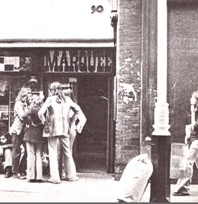
I only ever went to Wardour Street, but YES! that was the place I got my true education. It was affordable, done in time to get the last tube home and had no bar (until the 70’s) – and so was open to all ages. I would skip games afternoons to clean peoples’ houses for pocket money, hide my school blazer and head to Soho with my mate to see bands right from the charts at extremely close quarters. This included (between 65-68) The Who, Yardbirds, Cream and most of all the legendary Jimi Hendrix night.
Shadowplays: That Jimi Hendrix show was one of the defining moments of Rock! The Marquee Club seemed to have its fair share of those kind of moments. Melody Maker once described the Marquee as the “melting pot of today’s hip music, where jazz, folk, and pop meet on equal terms. Where trends are born, and stars emerge.” Such an incredible list of bands that appeared there! Looking at just one month of gigs there in March of ’65 they had: Long John Baldry and the Hoochie Coochie Men, Mike Cotton, Alex Harvey Soul Band, Manfred Mann, Moody Blues, T-Bone Walker, The Who, and The Yardbirds. They also added a recording studio in ’67 – a no-brainer considering the talent that came through the Marquee’s doors. What are your favourite memories of the Marquee?
Robin Sylvester: Well, you already got me started & now you’re encouraging me! That was the Beck Yardbirds, by the way, – opening band The Spencer Davis Group. I noticed Jeff Beck walking up to The Ship (pub on the corner) and stood watching musicians go in and out. Soon as I was old enough (maybe sooner..) I became a regular there myself. Quite convenient, half way between Trident Studios and the Marquee! The recording studio behind the Marquee really was nothing until they installed an MCI board in the 70’s. Then it was first class. Seeing Hendrix in that tiny crowded room in January ’67 was truly such a transcendental experience for me. I was privileged to be there. He didn’t even have original material yet! In late ’68 Yes (original line-up) had a Thursday night residency I went to several times. One rainy night I counted 11 people in the room! We asked them (while they were packing up their gear) why they didn’t have a record out and they said they were waiting because they wanted to sign with Atlantic!!!
Well, the Marquee was one of the main places and on a night you could see the Yardbirds supported by some other important group. I mean I saw the Spencer Davis Group there. I saw the Who there. The other clubs you could play included the Ricky-Tick, the 100 Club on Oxford Street, down in Richmond, the Tennis club the Yardbirds would play, tons of places, and lots of college gigs as well, and lots of pubs. — Rory Gallagher, 1991 interview for Goldmine Magazine
Robin Sylvester: If I looked through a book about mid-60’s bands I could make a pointless shopping-list of bands I caught here [at the Marquee] or elsewhere, notably Middle Earth/UFO/Roundhouse, the Saville Theatre and various colleges. Some more notable Marquee moments include: Muddy Waters, where drummer S.P.Leary was so drunk he fell off his stool; the night we went to see Lowell Fulsom, partly because Fleetwood Mac were billed to back him up. When we got there we found out The Mac were apparently “charging too much” and he would use The Aynsley Dunbar Retaliation instead: ok, we took a front row seat (& I use the term loosely!) in the fairly empty room and the opening band Navy Blue came out, announcing that from that night on they were calling themselves Jethro Tull, “The man who invented the seed drill”. How were they? Great! Another band whose blues roots were pure. Ian Anderson and Mick Abrahams did a couple of great acoustic blues tunes, I recall.
In the summer of ’67 I enjoyed most of the burgeoning psychedelic bands around town: Pink Floyd with Syd; Soft Machine; Tomorrow; Zoot Money’s Dantalions Chariot: Pretty Things. I even went to a couple of “Ready, Steady, Go” broadcasts in my groovy checked hipster trousers!
Long John was always around, and always had great bands. Manfred Mann, yes. Paul Jones was really friendly; we talked about R&B records one night & I went home and made a want-list of hard-to-find singles. Alex Harvey . . .Ah, Milo! The memories you are unlocking! But my Alex stories would come a little later. There was some rivalry between Geno Washington and Jimmy James & The Vagabonds. Seems silly now! Geno had a slick soul outfit, and Jimmy had a looser more Jamaican sound which I enjoyed. I’m still going to resist looking at a list!
Shadowplays: In an Adam Perry interview you mentioned that you watched the evolution of Fleetwood Mac from 3-piece to 4-piece to 5-piece. From Peter Green to Danny Kirwan? What a “long, strange trip it’s been” for them. I remember when they were called “Peter Green’s Fleetwood Mac”. He played with such incredible feeling. I like Santana’s take on Black Magic Woman, but Peter’s original version was so beautiful.
Robin Sylvester: Ah yes. A sublimely beautiful player. Played from somewhere deep inside, like our Rory. A couple of us used to go from gig to gig in London following PG’s FleetwoodMac – they played a lot. I was probably thinking of the early shows when they were technically a 4-piece, but used to do the serious stuff as a 3-piece – without Jeremy Spencer who would get up and do his Elmore James schtick every now and then. When Danny Kirwan joined (very suddenly) they became more integrated.
Shadowplays: Speaking of Rory, I remember reading that Rory was surprised when The Mac came out with the single “Albatross”. Rory was very much against “the single”. Were you involved in any of Mac’s later releases?
Robin Sylvester: Rory had his purist side! But I never heard him say anything negative about anything really. I could hear him laughing at it!! I never had a direct connection with The Mac, only individual members.
Shadowplays: Wikipedia has you down as playing with Christine McVie later on. Interesting since she started out with Chickenshack with ANDY Sylvester as band leader and bassist. No relation I guess? Did you play or work with any other FM splinter groups? For instance Bob Welch?
Robin Sylvester: Wiki has it right this time! This was around ’81 and the Mac was slowing down giving Christine time to stretch out as a producer and solo artist. We did some good stuff with singer/songwriter Robbie Patton, and got very close to doing Christine’s solo album. We had a good relationship, I thought, but things moved too slowly and there was a sort of L.A. shuffle while I was up in San Francisco by then.
Subsequently I did work some with Bob Welch, including a big show released on Laser Disc (!!) and some of which I’ve found on You Tube. One tune has all the Mac sitting in except Lindsey. I stayed on stage to cover his vocal part, and Stevie kept coming over to sing with me . . . It looks very strange!!! (Who IS this guy??)!!
No relation to Andy, nor the guy in the Hollies.
Shadowplays: Was this Bob Welch and Friends, Live at the Roxy 1981? I’ve seen videos of the concert on youtube.
Robin Sylvester: Yes, that was it. I played bass the whole show except for “Hypnotized” when McVie jumped up and took over. At that point I grabbed a shaker and became a mysterious singer again! I’m pretty well hidden, mind you. It was a great time, but really belongs to a different era from the one we’re focusing on.
Shadowplays: Well, let’s get back to the 60’s then. By the late 60’s Rory Gallagher was getting some attention with his band Taste. In a New Musical Express interview, John Lennon called Rory Galllagher and Taste: an especially “bright spot” in an otherwise dull year. The original Taste with Eric Kitteringham and Norman Damery played the Marquee on several occasions in early ’68 and then the new Taste with Wilson and McCracken did their first few shows there late that summer after signing with Polydor. Was it at the Marquee you first saw Rory Gallagher play, or somewhere else? What kind of impression did he make?
Robin Sylvester: A high-school band I was sitting in with opened for Taste at The Country Club, Belsize Park in mid-’68. Rory blew me away, but not the rhythm section. Years later he astounded me by remembering tunes from our setlist on that night!!
Shadowplays: The owner of the Marquee, Harry Pendleton, also organized the Reading Festivals, using it, among other things, as a way to promote the bands that had a residency at the Marquee. Taste played the Reading Festivals in ’68 and ’70, and the Rory Gallagher Band played it in ’71, ’73, ’76, and ’80. Did you ever go to the Reading Festival or other large festivals like the Isle of Wight that were popular back then?
Robin Sylvester: No. Sadly, once I started engineering in ’69 I just didn’t have that kind of time off for about 5 years. Sessions always over-ran, and I remember many late night dashes to try and catch the end of somebody’s set (and last call!). These were often bands I was working with, whose gigs were in strange remote places. I was getting my music mostly from records and, of course, daily huge doses in the studio.
I did make some of the larger London events, like The Technicolor Dream at Alexandra Palace, and Christmas On Earth at Olympia. Nobody was at their best at those, and the sound was terrible, except for Jimi [Hendrix] who didn’t need no stinkin’ fancy PA!! The Roundhouse Saturdays were all-night events which would end before the first tube. There was always an interesting crowd gathered waiting outside Chalk Farm station, or you could walk up to Primrose Hill and watch the dawn. I actually saw Donovan there once doing the same thing!
Shadowplays: You were also playing in bands by this time, the first being the David Lund Trio? Is this the jazz pianist, David Lund? He recently died of Parkinson’s Disease. In an article I read after his passing it mentioned that in his youth he would listen in bed to jazz on the American Services Radio. I remember reading that Rory Gallagher too would listen to American Services Radio in order to listen to Blues. This seemed one of the few ways to listen to American Blues & Jazz in those days.
Robin Sylvester: If you saved up 32-and-6 pence you could go to Dobell’s on Charing Cross Rd and listen to all kinds of records all day, then buy the most interesting one to take home. They had folk, jazz and blues in abundance. There was also a street market in Soho with barrows-full of great records.
Sorry to hear of Dave Lund’s death; I had heard he was very sick. He was my English Lit teacher when I was about 13, straight down from Cambridge, very hip, and the first person I ever heard who could play in an Oscar Peterson style. He drafted our band’s drummer, Julian Diggle (oh, do google the old jazz-monk!) and myself on the eminently unplayable school double-bass. We were a feature every year at the end-of-school concert, and by the time I left school we were actually making appearances locally at such as the Hampstead Everyman.
Thanks for the link [to the David Lund article]. I was fascinated to read that he was well known for what he started with our trio. He used to invite famous musicians like Humphrey Lyttleton to the school to talk and play a few tunes with us, and he took us to see/meet Dudley Moore one day, playing with HIS great trio. I have my final report where he wishes me good luck in my musical career! I see he still lived on Frognal after all these years . . . that is just a few steps from the school where he taught. Even the church-yard in which they buried him is just over the back garden wall! A great man; he must have inspired many more generations of kids after me.
Shadowplays: After the David Lund Trio you played along with several other University College students in a band called Ora. How would you describe their sound? Folk-Rock? I’ve listened to the reissue of their one album that included some bonus tracks. Were you involved in the re-issue? I thought Whitch was a strong tune. Did it get some airplay? Some of the tunes are up on Youtube.
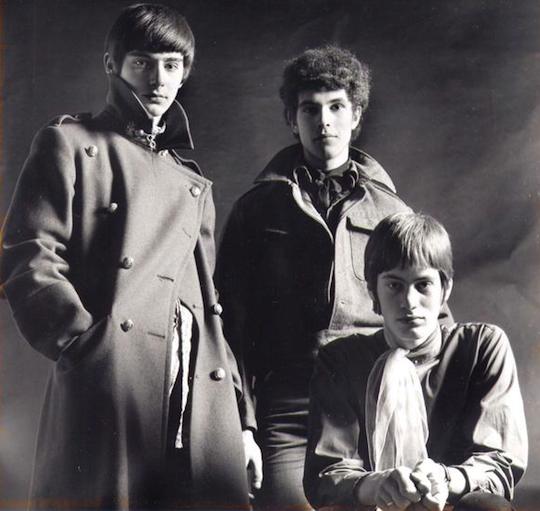
Ora band members James Rubinstein, Julian Diggle, and Robin Sylvester
Robin Sylvester: We were a 3-piece, loud Hendrix/Cream-style high-school band, in which I played guitar, until James (Rubinstein) started writing prolifically – so I switched to bass and the sound became softer. On the tune you mention and maybe a couple more, we added my room-mate of the time on lead guitar to mix it up a bit.
The re-issue was made by James from his hoard of old tapes. Most extras were from Tangerine experiments, late at night or on infrequent days off. I really had nothing to do with the compilation. Amazing to hear my early endeavours at the board!
Shadowplays: ORA evolved into Byzantium which had a much larger following. Was it a similar sound? Were you playing bass for them or had you by this time moved to the engineering/production side of the equation?
Robin Sylvester: Byzantium was another group of friends from school who performed intricate arrangements of James’s tunes (but without him, – at least at first). When they added Chaz Jankel (Blockheads) they became professional, signing with Gaff Management & securing a deal with A&M (UK) and Warner Bros (US). I had produced the demo tapes on a day off, and hence found myself suddenly co-producing a band with a real budget.
Shadowplays: You got into the technical side of record production, purely accidental? Can you explain the circumstances. What was the name of the band that you first filled in as engineer for?
Robin Sylvester: The owner of the record company that recorded Ora decided to build a studio, with no actual knowledge on the subject, in one corner of his bingo-hall in Dalston (N.E. London). I was hanging around from the start (spring of 69), watching the engineer they hired, & experimenting by myself or with friends in the middle of the night. One day early on, Jonathan King had booked the studio to try it out and to record a Serge Gainsberg tune with a handful of session-men, and when it became clear the engineer was not going to turn up, I stuck my neck out and confidently said I could handle it. And so I did. Mr King was very patient with what I’m sure was an inferior session for him; but I was hooked! The next day I was chief engineer and fielding “trial” sessions for all kinds of people, some of which went very well.
Shadowplays: Very well, indeed! You got to work with some incredibly talented people. Let’s talk about your time as chief engineer at Tangerine Studios.
Part Two: Tangerine Studios
Shadowplays: Tangerine Studios was a small independent studio, with an 8-track console? So it was more for the bands “on a budget” so to speak, then say an Abbey Road or the larger record company studios? It no longer exists, but where was it located? Gerry McAvoy said there was a great pub around the corner they use to frequent during breaks in recording. He also said that if you listen closely you can hear the next door Bingo Hall in the recordings.
Robin Sylvester: It was on Kingsland Rd, and was an 8-track budget-studio. But 8-track was state-of-the-art in 1969. Trident was the only 16-track in town. Things were just progressing from 4-track, and some of the best studios were just adding modules onto their old boards to keep up! We worked well for bands on smaller labels like Deram, Transatlantic, Dawn & Dandelion. And back then everyone made studio demos, too.
The bingo hall was a feature of life at Tangerine. It didn’t interfere very often, but Medicine Head didn’t like it and left. I once arrived on the late side to find Atomic Rooster and all their equipment surrounded by hundreds of bingo-ladies, all waiting in this narrow hallway! Vincent Crane cowering like Neil from the Young Ones!!
Shadowplays: And there is a Joe Meek connection to the studio? He was quite an historic producer back then. I think his boxes of “outtakes” from his Holloway Studio days went for a good penny at auction after his death. How long was Tangerine Studios around?
Robin Sylvester: Joe Meek’s connection was that we bought the old console from Lansdowne Studios, built by Meek, and we had it brought up to 8-track spec by Ted Fletcher, his tech. A great sounding board; quirky and difficult to operate! Tangerine was in dire shape by the time I went free-lance and started playing more in 1974. The next time I was there , late ’75, there were new owners and new (16-track, finally) equipment. I don’t know what happened after that.
Shadowplays: During your time there, you worked with some interesting bands, including the forgotten Black Cat Bones. This was after Kossoff and Kirke left? And you also played piano on the album as well — on the song, “Please Tell Me Baby”.
Robin Sylvester:
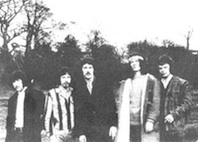
The band was in transition, with Rod Price (Foghat) on guitar. It was a fun quick project, and I was still learning about sound . . . much credit to producer David Hitchcock, who must have known I was a novice 19-yr old who was eager to learn. The piano came about simply because they decided that track needed some piano, and after trying out everyone in the band I boldly volunteered and went out and played one take on the already miked piano. I was not present at the re-mix, and the next thing I knew there I was on the record; they even faded out the rest of the band for an awkward stumbling moment . . . . I’m very proud to have had the credit: ” Superb bad-rock piano . . .” There is also a track called “Sylvester’s Blues”, which was not about me, but about a certain close female relative. My lips are sealed.
Shadowplays: David Hitchcock produced this album as well as many of the progressive groups of the time; such as Caravan, Camel and Genesis. (I think he became an accountant years later.) I admit to a soft spot for those old prog days. You were involved with a few of the Caravan releases as well? That whole Cantebury scene was a melting pot of fantastic progressive rock and jazz bands. Caravan, Soft Machine, Camel, Hatfield and the North, National Health: just some incredibly gifted musicians in a small area in Kent. Some great keyboard players: Dave Sinclair, Dave Stewart, Peter Bardens, did you ever work with Peter Bardens? I still listen to some of his stuff with Peter Green. Late 60’s early 70’s was such an incredible, diverse time musically. You also worked in the studio with East of Eden? with David Arbus on violin? He did the solo in The Who’s Baba O’Riley.
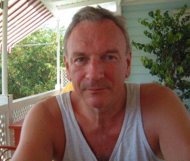
Robin Sylvester: East Of Eden was the first session I did with David Hitchcock. Very early on they came in to try the studio, and made some great demos. They came back to make the whole album, and with David’s guidance got a very reasonable sound. This was followed quite swiftly by Black Cat Bones and Caravan, with whom I formed quite a tight personal relationship for a couple of years. Lots of fun experimental stuff, all squeezed onto 8-track. Peter Bardens brought Marsupilami in, and did a few things of his own. There were SO many sessions in those days – I would frequently sleep under the piano! – a lot of jazz (John Surman), blues (Champion Jack Dupree, Aynsley Dunbar Retaliation) and a ton of hopeful writers (Richard O’Brien with bits of Rocky Horror material!!). The Move came in one day (as a 3-piece) and bashed out “Hello Suzie”. I was barely 19 and loving every minute!
Forgive me, but I would like to take this opportunity to thank David Hitchcock for lifting me out of the gutter one night when I was most embarrassingly incapacitated after a christmas party. My girlfriend had wisely abandoned me; but David bribed a taxi driver to take me home and everyone made fun of me for weeks. Doesn’t seem so funny now. Anyhow, I never had the chance to thank him: thanks David.
Shadowplays: You got to work with some great artists, but (at least for this writer) your greatest collaboration at Tangerine Studio was working with Irish legend, Rory Gallagher. Here is what Rory said about you in an interview in the mid-70″s. Sounds like with you at the boards, Rory didn’t need a producer!
I was working with a great engineer Robin Sylvester and he’s A-one. I’ve worked with him before and he’s caught us at gigs so I can leave a lot on his shoulders. — Rory Gallagher
Robin Sylvester: A-one! That’s a Rory turn of phrase all right! I can hear his gentle brogue saying that! Well, thanks for the confidence. I was a huge personal fan, so I gave his sessions my best. If he wanted to sing live in that tiny room with a loud band . .breaking every rule I had learned . . . then I would find a way to do it.
Shadowplays: Rory’s brother, Donal, has said that they first met you through your connection with Byzantium. Do you remember those times? I know they opened a few times for him at Sheffield Music Hall. Do you remember your first conversation with Rory?
Robin Sylvester: There was a management/agent connection. Someone probably said Rory would love this funky studio, and he came to try it out. I first met him in the studio; but it was very relaxed – just the 3 of them plus Donal. We hung out together on the break and talked about blues artists and the kind of sound he was after. He had more extensive knowledge of the blues than anybody else I’d ever met, and from the sound of it he had all those hard-to-find records, too!
Shadowplays: A very extensive knowledge of the blues. Watching old interviews of Rory is almost as enjoyable as watching him play. He was so knowledgeable about music, in particular about the Blues, and he spoke so articulately. How many albums did you engineer for Rory? And what was your favorite?
Robin Sylvester: Deuce, Live In Europe, Irish Tour 74, and Against The Grain were pretty much all my own work – I didn’t even rate an assistant at Tangerine! – I helped with the mixes on Tattoo, and there was other stuff that never saw the light of day back then.
Shadowplays: Let’s start with the first of these albums, Deuce. Johnny Marr called Deuce a major influence on his guitar playing:
I spent a day just playing along with the album. It was a complete turning point for me.” — Johnny Marr
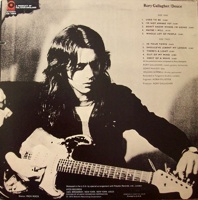
So Rory came into Tangerine Studios to have a look around, recorded a few tracks, then hired you guys to record his second solo album, Deuce? What do you remember about working on the project? The liner notes state that Rory was trying to “capture the raw feel of a live performance” and many of the sessions were recorded directly after or before gigs. That must have been exhausting going directly from a gig to recording. He was such a workaholic. And his approach to recording was a bare bones minimalist philosophy — hit “record” and see what we’ve got? Any favorites tunes from those sessions? I thought Crest of a Wave was a great way to end that album.
Robin Sylvester: That’s basically the story. I remember after the try-out I made some rough mixes, trying to impress him with wild Hendrix-y effects . . he must have HATED it! But he came back and politely steered me to the rough-edged sound he was after. He always wanted more bass on the guitar, liked to feel the room moving sympathetically. It was always sweaty in Tangerine, no matter the weather – and unbearable on summer days. Didn’t bother Rory! We would work in sensible time parcels, with decent breaks and Chinese take-away or Fish & Chips, and the pub before closing time. We did schedule some stuff after shows, yes. I don’t remember specifics. I was always amazed that Rory could rip off an overdub passage early in the morning with as much feeling as late at night. Actually the whole project was very quick. We mastered at Apple, by the way . . .it was always a thrill when they were still at Saville Row, just being in that Apple building!
Shadowplays: Did you ever meet the Beatles, or see any of their shows?
Robin Sylvester: Well, yes and no (however wiki-pedia has it!) I certainly saw them several times at the Finsbury Park Astoria, and their Christmas show at Hammersmith Odeon. Can’t say I really HEARD them, though, – the screaming was unreal. Never met any of them in any significant way . . . I saw John in an antique store in Weybridge in the summer of ’67, along with the painted Rolls-Royce, which was quite a thrill. Also saw him strolling down Amsterdam Avenue with Yoko in ’76, which somehow felt very normal! Ringo turned up at a Wardour St drinking club one day, but didn’t stay long. That’s about it. I learned bass from listening to Paul, and I was mixing at Abbey Rd one day when the Beatles were in the middle of making the AR album, – but they were not present that day. I was shown the studio. There was a note on the board not to touch anything because Paul would be coming in early to complete some vocals. I was, of course, quite a novice then, trying to remember everything, like the linen dish-cloths used to damp the drums; but mostly I remember the bed for Yoko, the toaster, the hang-out area behind the huge screens.
Shadowplays: For our interview you’ve gone back and had another listen to the albums you engineered for Rory. What was your impressions of Deuce, after so many years?
Robin Sylvester: I first put on my original Polydor UK album. In pretty good condition for 40 years of frequent playing! A little surface noise, but I can hear everything we did quite clearly. I’m very fond of it, as of one’s first-born, and I could never pick a favorite track. Every tune evokes a dozen memories, at least half of them technical. The drum sound is . . .very old-school. If we used 3 tracks for them it was a rare extravagance! No digital effects of any kind, of course, even in our dreams. We used no DI (direct feed) on the bass. Why not? Because we didn’t have one!
Most of Rory’s guitars were played live, along with the vocals. Some rhythm parts were doubled and added under the solos. I’d forgotten about the 12-string . . . And what a great harmonica player, too! All the slide parts and the open-tune rhythm-parts were played on the Telecaster; the rest on the Strat. This was still the Vox AC-30 with Treble-Booster period. Nothing else!
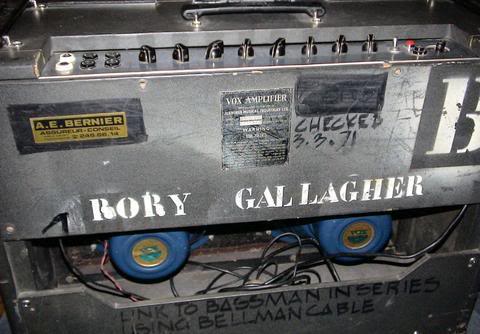
At one point he also got a nice old tan Fender Twin – which burst into flames on stage one night.
I also have a l979 Chrysalis (U.S.) copy: no surface noise! But definitely from a second generation tape. For example, the slide on “In Your Town” just screams on the original.
I notice on some tunes we used a touch of what I used to call “John Lennon” tape-delay on the vocal. (A fast-speed single delay from the playback head of the spare 2-track. At slower speeds this was the “Elvis” echo!) This helped the guitar sound open up too: Tangerine was small and boxy and needed a little help! The odd drastic panning effects were another product of the board’s restrictions. Believe it or not, it had no pan-pots! Four selected channels could be switched to a half-right or half-left position, and changes during a mix had an unpredictable effect on the level!
Shadowplays: I never thought about there being a difference in the sound between the UK release and American release of the same album. I might have to expand my collection. Thank heavens for ebay!
Part Three: Rory Gallagher Live

Shadowplays: So after Deuce we go from Rory attempting to record a “live” album in the studio to the truly live “Live in Europe”. This album charted well, making it to the top ten albums for the year. It was also Rory’s first “gold” album. You are listed as engineer along with Gerhard Henjes and Alan Perkins. Many of the tracks for the live album came from a gig at Luton Town Hall. In fact, Gerry McAvoy said it should have been called “Live at Luton”.
Robin Sylvester: Funny! And mostly true. By the time we had all the candidates mixed Rory wasn’t so concerned about location.
Shadowplays: What was your involvement with the albums production. Where you at some of these gigs in Germany, France and the U.K. where they were recorded? Any memories of those shows?
Robin Sylvester: We started listening to a load of live recordings Rory had gathered, – including many from Gerhard Henjes in Germany and Holland. Some were good, but did not convey the feeling he was after. By then we had a good understanding between us, so he set up the Pye Mobile Unit to record 3 shows (Luton, Nottingham & Leicester I’m almost certain). Lacking a producer, he designated me to co-ordinate things, which was easy with the professional crew and beautiful Neve studio-in-a-truck. The great Alan Perkins would have come with the truck, and probably did most of the real work on location! Bad traffic caused a tardy arrival in Nottingham, and I remember crawling all over the stage setting up while poor Nazareth were trying to do their opening set . . then it was guess the levels and, wham, right into a killer Messin’ With The Kid! Phew! . .the pressure! Luton was the best night, yes. (Opening band Genesis. . . I should have rolled tape!) We mixed a lot of tracks and refined the best to two <20 minute sections, and then it left my hands.
Shadowplays: Alan Perkins. He was also part of the famous 1970 Isle of Wight recording crew that filmed Murray Lerner’s documentary “Message to Love” . A nicely done documentary that includes a bit of Rory Gallagher and Taste’s 5-encore performance there. Hopefully one day all the footage of Taste that was filmed that day will be released on DVD!
So after listening to “Live in Europe” again, your impressions?
Robin Sylvester: I know we tried different ways to balance the 3-piece in the stereo picture. As I put on my original vinyl I am curious to see how we ended up.
. . . Strange to hear those tunes without piano! Seems like we went for the most natural balance, not worrying about the bass being a bit off-center as we knew it would be dragged central by the mastering process. We also went for the in-your-face guitar sound rather than blending in the sound of the concert hall. There was plenty of leakage on the vocal mike, anyway, – and this approach disguised that quite neatly. I would have hand-ridden the vocal in and out gently rather than use the crude noise-gate of the day. My original Polydor UK record sounds very good. No particular memories stirred except how straight-forward the whole process was: we mixed everything roughly and Rory chose his favorites, by then looking for specific tunes. Ahh! I love where he re-tunes his bottom string while singing on Laundromat! In Your Town sounds like the Strat with slide, which became more common.
I recall right at the very end we finished the sequencing in the middle of the night in some studio I’d never worked in before and worked very hard matching up levels and making the segues smooth. Much harder back then than it sounds nowadays!
Rory asked me what credit I thought was appropriate for me and I said: “Oh, something like remix engineer and mobile unit co-ordinator” – and that’s exactly what he put on the cover.
I enjoyed listening to that. I don’t have a cd yet, and my US Polydor from 1972 (called simply “Live”, no gatefold sleeve) sounds exactly the same except for the mastering job.
Shadowplays: Following “Live in Europe” came Blueprint along with the line-up change of Rod De’Ath replacing Wilgar Campbell on drums, and the addition of Lou Martin on keyboard, both from the band, Killing Floor. This time Phil Dunn and Andy Stephens handled the Engineer duties at the Marquee Studios. Had you left Tangerine Studios by then?
Robin Sylvester: No, I was stuck working my butt off at Tangerine for years, producing Byzantium in my spare time, etc. I would stay in touch and appear at Rory’s shows when I could. We never really discussed Blueprint. The Marquee was a superior studio by then, with 16-track, and that may have entered into the decision, along with the location. I visited during a remix session one day; we went for a drink at The Ship and ran into Brian May (waiting for his graveyard-shift session at Trident to start) He and Freddy often had to wait for the previous session to end, – sometimes it was my session! They would wait in the pub, but not drinking. Brian was nursing a liver problem anyway, I recall. I got to be a fly-on-the-wall during a detailed equipment discussion. (Rory swore by his VINTAGE treble-booster, and Brian had made his own copy of same!) Those were the days . . .
Shadowplays: Brian May — there’s a quote in one of the Rory biographies where Brian credits him for his sound.
I owe Rory my sound…I’d be the first to acknowledge a huge debt to the man. I wish he here to say that to, I really, really, wish he was here — Brian May.
After Blueprint came my two favorite Rory Gallagher albums, Tattoo and Irish Tour ’74. Tattoo was engineered by Carlos Olms. You did the remixes for Tattoo? This album had some great songs on it: Tattoo’d Lady, Cradle Rock, Who’s that Coming, A Million Miles Away. Just a classic Rory album. It also had a song on it that I thought was not your typical Rory Gallagher song, They Don’t Make Them Like You Anymore. That song has a big band, jazzy feel to it. I can see someone like Frank Sinatra singing that song! What did you think of the new line-up with Lou and Rod? The movement from a 3-piece to 4-piece band — having a guy on keys seemed to be popular back then.
Robin Sylvester: The band had recorded all the tracks at Polydor Records’ in-house studio, a very small 8-track room, and Rory called me in to see if I could help with the mixes. We used various studios and I have no idea where the finals came from, – even though I edited and sequenced it myself!! I don’t actually own the cd of Tattoo, and my vinyl sounds a little murky. I don’t remember doing anything radical, but mixing in the piano changed the perspective, and I frankly don’t think I quite got it right. Got Rory sounding big, though . . . The new band sounded great to me, but mostly I loved the new songs Rory was writing.
Shadowplays: Great songs, and the next album, Irish Tour ’74 perfectly captured many of those songs live. In my totally biased opinion, it’s the best live album ever! The recording of these live songs was done mostly using Ronnie Lane’s Mobile studio. Did you travel around on the LMS ? It was an airstream bus with a 16-track console. The Who used the LMS for the recording of Quadrophenia.
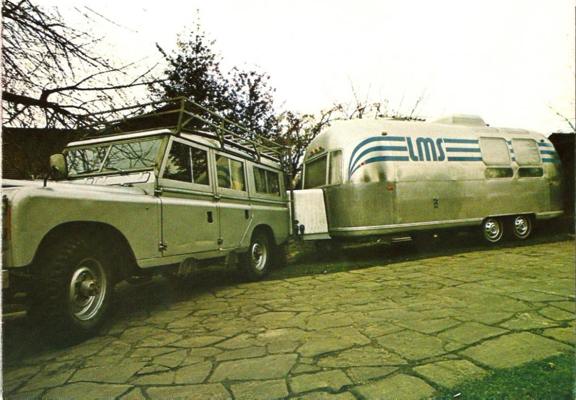
Tony Palmer was there also, taping a documentary about Rory and the band. So you’ve got 3 Venues, a sound crew and a film crew: it sounds like a logistical nightmare. Donal mentions that some of the tracks used on the album had to be recorded directly from the Tony Palmer’s film crew’s mixing deck because of a problem with the LMS not being able to travel to Belfast. Did the insurers consider Belfast too risky of a venue because of “the troubles” in Northern Ireland? Were there other complications
Robin Sylvester: Yes . . . what a to-do that was! I was booked to supervise recording the 3 Irish shows, and the Lane Mobile was booked. First snag: they only had one 16-track machine, and I wanted to run overlapping tapes so as not to interrupt the shows while we changed reels. Rory and I decided to go 8-track, since they had a second machine for that.
Second snag: The Mobile would not be making it to Belfast for various reasons and would meet us in Dublin. They had a rough crossing on the Irish Sea and we were still waiting for them during Thin Lizzy’s opening set. They arrived, but not in time to get anything usable except the acoustic tunes.
Third snag: the film unit, which was a surprise to me, needed a track for their synchronizing code. We had to go down to one track for the audience mikes! We also had to cross our fingers that Cork would be good . . . . and it was!! I traveled down from Dublin with Rory, Tony Palmer and cameraman. Rory good-naturedly larked around the Blarney Stone along the way.
The original record all came from our 7-track recordings except one acoustic tune, which we did take from the film sound-crew.
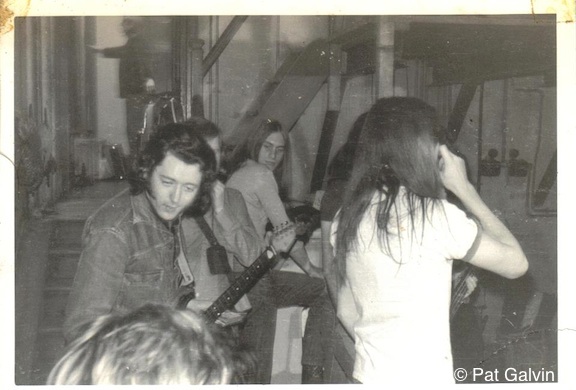
Robin Sylvester backstage with Rory during the making of Irish Tour ’74, ©Pat Galvin
Shadowplays: You mentioned in a previous interview that side 4 of that double live album (Stompin’ Ground, Just A Little Bit) were bits and pieces from the sound check. Do you mean the sound check from the Cork City Hall show?
Robin Sylvester: We had 3 good sides and some fairly rough soundcheck jams from Cork. I made a lot of edits. mostly to give them more form. Pretty crude, really . . . but I used to love wielding the razor-blade!
Shadowplays: When the album was re-issued as a CD, “Just a Little Bit” was cut out and replaced with a 30-second snippet of “Maritime”. A shame really, “Just a Little Bit” rocked! Presumably this was done to condense the double album into one CD.
Robin Sylvester:Another reason they may have left off JUST A LITTLE BIT is the way we constructed it: we put sections together much like you would in Pro- Tools today, lots ofcopying and editing. The 8-track master was probably a real mess physically and a nightmare to try and mix! Sorry guys!
Shadowplays: Was there any more to “Maritime”? I’ve never heard any longer version of the instrumental. Was it something Rory did off the cuff in the studio? Or was it a complete song going in? The only info I’ve ever read was Donal’s notes about it being a dedication to Rory’s time at the Maritime Hotel in Belfast.
Robin Sylvester: MARITIME: We were constructing side 4 of IT74 in Tangerine studios out of very little material from the sound-check in Cork, and we loved this little piece of fun that lasted not much longer than the 30 seconds! Rory wasn’t sure it fitted in, but went for using it right at the end, with a quick fade. It was originally referred to as “The Edgar Lustgarten Story”, and it made Rory laugh to picture it playing over a foggy scene in an old black & white mystery movie!! That’s the whole story!!
Shadowplays: Edgar Lustgarten. He was the British version of Jack Webb, right? The Tornados did the theme to Lustgarten’s tv crime drama,“Scales of Justice”. Similar to the sound Rory was going for in Maritime, don’t you think?
Robin Sylvester: Rory’s “Edgar Lustgarten” reference was more likely The Shadows than the Tornadoes – but who knows! Edgar used to present low budget murder mysteries on late-night TV; his delivery was maybe even more wooden than Jack Webb’s!!.
Shadowplays: Ah the Shadows! I guess it would be much more likely Rory referencing the Shadows. I thought it was so cool the way the Shadow’s guitarists would all line up like an attacking army and play note for note. I don’t think they ever made it big here in the States despite their overwhelming popularity in England. I remember trying to learn to play “Apache” when I was a kid, though it might have been the Ventures version of it! Rory mentioned Hank Marvin quite a lot in interviews. In fact, I think Rory got his famous stratocaster because some showband guitarist thought he had ordered a solid red stratocaster like the one Hank used but instead got a red sunburst and returned it. Rory saw it at Crowley’s Music Store and had to have it. The rest is history!
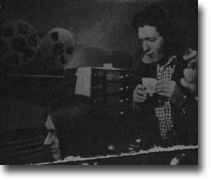
Shadowplays: Rory seemed wedded to that strat. Any remembered jams between you guys in the studios, the kind of tunes played, etc?
Robin Sylvester: Well, his guitar was always around, and Tangerine, at least, had a nice piano and B3. We never played what you might call real tunes; mostly we were just killing a few minutes to clear our heads or waiting for Donal to come back with the food! He was happy for me to play the guitar, but I was too shy in front of him to play anything serious!
Shadowplays: In Gerry McAvoy’s autobiography, Riding Shotgun, he talks about a late night gathering with some of “The Dubliners” at the Gresham in Dublin, and a jam at the Cork Rowing House, and some hi-jinks at the Metropole Hotel during the taping of the Irish Tour. Were you in on any of this?
Robin Sylvester: I was there for all the things you mention, actually! The backstage entourage [for the Dublin show] was huge and the party found its way to the hotel lobby where it lingered until dawn. Plenty of drinking, of course, but it was a pleasant scene of camaraderie, none of the drugs and girl-chasing I have seen plenty of with other bands. Luke (Dubliners banjo player) came back to the Gresham along with some other locals, and we all took advantage of hotel licensing laws until the dawn, at which point Luke headed for the docks where he knew a pub that was just opening! We were all a bit shaky the next day, and I woke up with almost no voice. This made my job harder as I could not shout instructions through the talkback to the stage. Consequently I did most of the set-up myself, including that atrocious duct-taping job on Rory’s mike. (We had to double-mike because there were no splitters . . . another surprise!!)
On the day of the show, when Rory and Donal picked me up at lunch-time, and after meeting their mother, they kindly agreed to show me a real Cork pub, where I could sample the local Murphys. We discussed the differences between room-temperature and cold, and I declined the traditional “Paddy’s while you wait for it to pour” that the bartender offered. It was a cheerful place, just the thing on a wintry Cork day.
As for the Metropole . . .I think Gerry and I were the guilty parties that night. Or at least, we were trying!
There was a great end-of-tour party at the Rowing House after the Cork show; but I was exhausted and had laryngitis and an early flight. Not that that would have slowed me down a lot back then . . .
IT74, ultimately, was a wonderful, magical, sleep-deprived few days of hard work and play in a strange land. I had a bad case of laryngitis and hangover and did my best amidst ever-changing circumstances. The mixes (back in London) were very straight-forward, and Side 4 (After Hours) was a fun experiment for Rory and me to use a little studio trickery for once.
Part Four: Against the Grain
Shadowplays: You mentioned in an old interview that Rory considered offering you the keyboard position in the band. Was this when they were a 3-piece with Wilgar on drums? Prior to Lou being hired? And let me just say, what a great “if only” that one is!
Robin Sylvester: I don’t think he considered me very seriously! His exact words were: “You’ll never know how close you came to being offered the gig!!” with a big smile on his face! (After he had hired Lou.) We did have some fun jams though, especially on breaks during long re-mix sessions. I knew all his material . . . .!! And yes, sometimes I played THAT guitar.
Shadowplays: With the completion of Irish Tour ’74 Rory had finished up his obligations with Polydor and signed a multi-album deal with Chris Wright and Terry Ellis of Chrysalis. You are credited as engineer and remixing on the first of these albums, “Against the Grain”.
The album had some good rockers like Souped-up Ford, Bought and Sold, and I Take What I Want. There is almost a 2-year span between IT’74 and Against the Grain, Rory came into the studio with a lot of new material. In an interview, Rory mentioned that it took longer than previous albums to record, taking more than a month. How long had it taken to record Deuce or Tattoo? Could you see a difference in Rory’s approach to this album as opposed to Tattoo or Deuce?
Robin Sylvester: I don’t recall things taking a lot longer, at least as far as the playing was concerned. He was still polishing some of the lyrics, so I suppose there were a few more vocal overdubs than before. I had some American visitors, and he ran a draft of Souped-Up Ford by them to make sure the terminology was right!
We did some good mixes and made a test-pressing before it was decided that the piano needed to be louder. I can take partial blame for this, as I was not over-fond of the RMI piano Lou favoured. Since I felt like it always cut through anyway, I did tend to bury it slightly. This also left more room for Rory. Anyhow, we went back to Wessex and ran the mixes in sync with the 16-track, boosting the piano to taste, therefore ending up with a generation loss. It worked ok; but I still have the first white label test-pressing, and the first mixes really do have more depth and presence.
Shadowplays: Generation lost? Do you mean the loss of some sound quality because of recording a recording, something like that? By this time was Rory more amenable to breaking down the song and recording his voice and guitar piecemeal?
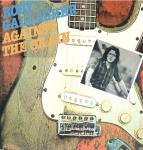
Robin Sylvester: Just so: the final mix was a recording of a recording with boosted piano added. There was no synchro between the 2-track (mixes) and 16-track (with the piano track), and we had to keep it in time with tiny adjustments of the 16-track speed. The only alternative was to re-mix the whole record, which I assume someone must have done by this time. Rory was always amenable to overdubs and fixes where necessary; he just preferred to get it down in an organic way.
Shadowplays: Speaking of re-mixes, something we haven’t talked about yet is the CD re-issues of the albums that you were involved with that have been released over the years. When they came out, there was considerable discussion among his fans regarding these remixes compared to the original albums. What are your thoughts about these re-issues?
Robin Sylvester: Being an old vinyl-fan, I haven’t listened a whole lot to the cd’s. I know nothing of the re-issue history, and I’ve never made a real comparison — until now. So I took the time to listen to all my Rory recordings that I could gather. These are mostly old vinyl, with some cd re-issues and a couple of live cassettes, – plus my treasured test-pressing of the SF album & test-lacquer of the 2 rejects from ATG. It was as overwhelming as it was enjoyable; most enlightening, and slightly frustrating . . .In general, I am not a fan of cd re-issues, especially when they are new mixes. The extra reverb on the Beatles, Aretha without the sizzle, the smoothness of Zappa’s painstaking reconstructions, – they all annoy me! So when I hear, say, Rory’s vocal with a ton of delay on it, I remember how he always made me pull such effects back more and more until they were just a slight fattening texture, – and that naturally gives me a bias towards the original mix with all its imperfections!!
Shadowplays: Well for example, how different was the remix of “Crest of a Wave,” the final song off the album Deuce? I’ve said it before but… what a great way to end an album!
Robin Sylvester: Crest OF A Wave is probably my favorite tune. I was a little concerned about the rhythm guitar sound on the new mix. What sounds a lot like a chorus effect (about 5-years too early!) is, I think, 2 guitar tracks playing together. Rory may have re-done his guitar part, but I’m sure it was not intended to be a double. Ironically, I sometimes used to play tracks back this way hoping to get his interest! – but he always had me roll back the double until it was invisible. It IS an appealing (and modern) sound, to be sure; I’m just used to the bite of the original. As I recall, that incredible slide solo and most of the vocal were performed live with the band. Flawless! – as the thrilled 19-year old engineer says at the end!
Notwithstanding my bias, it is not my intention to criticize the magnificent restoration jobs that have been done; tweaking those old 8-tracks must have been tricky. The acoustic tunes have been polished up particularly nicely.
Shadowplays: Colin Fairley, ex-drummer for String Driven Thing, did the re-mix of Deuce in 1997, a couple of years after Rory’s death. In an interview for a technical mag, Colin talked about spending most of ’97 remixing and remastering three of Rory’s albums, searching through hundreds of old multi-tracks for unreleased “gems.” Now that would be a nice way to spend a year! How does the remix of “Against the Grain” compare with the original? I think Rory was involved with the first CD reissue in ’91 and then Tony Arnold did a remix in ’99.
Robin Sylvester: I listened to my reject master [of Against The Grain lp] – the first mixes! – and was amazed. There is the sparkle on the drums, the fatness of the guitar, as originally intended! Sure, the piano is buried every now and then, but Rory sounds great! An old fogey like me can clearly hear the total lack of digital anything in the whole process. I can hear a few punch-ins that would be considered sloppy today! – but it was all on the fly: I was making instant decisions what to keep and where to punch. Yikes! Sounds scary now. But we all communicated well, and I really do think I knew what Rory wanted by 1975. My “Souped Up Ford”, especially, could definitely use more piano; it’s a pretty funky mix, – but the slide guitar could make paint blister! so I was probably sidetracked. The decade-old cd version buries the piano too, except for the solo. Good solution. We kept the organ more in the background on purpose.
Some of the lead guitar “comps” (chosen blends of performances) sound a little different from mine. Good idea, going back to the original tracks if they still existed. Digital can be your friend . . . . I noticed this on “I Take What I Want” where there is a little fumble which I would have tried to disguise somehow. Then I realized there was probably no indication on the original tape box beyond “favorite” or some such vagueness! I took notes on such things, my own shorthand, – I probably just tossed them out after comping. I saw some such notes I made in SF for “Overnight Bag” somewhere in my garage . . . .
Shadowplays: You mentioned a test-lacquer of 2 rejected songs from ATG. My Baby, Sure & Cluney Blues were the bonus tracks for the CD re-issue of Against the Grain. Were these the tracks that were left off the original vinyl release?
Robin Sylvester:
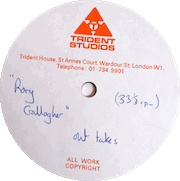
My Trident reference lacquer reveals the 2 tracks that we finished and left off ATG for reasons of space, mostly. Rory may have been unsure about how the rockabilly flavor of “My Baby Sure” would fit in with the other tunes. 1975 was a bit of a fluffy year in music, and he definitely wanted to make a rock album. The second tune is “Lonesome Highway”, and has always sounded good to me. The cd mix (on the Best Of) sounds almost exactly like mine actually.
“Cluney Blues” was presumably a test, – I told them to play something, adjusted levels and started the tape at some point for the guys to take a listen. You can hear me adjusting (trying to rein in!) the guitar as Rory gets more dialed in himself. I’ve not heard this since the day it was played! Rory lived in Cluny (sic) Mews in West London.
“My Baby Sure”: I’ve been enjoying this in private for 40 years. I’ve borrowed the bass-line myself on occasion – thanks Gerry! My mix is a tad more rockabilly flavor, and the guitar is way “echoey”. Love the chat at the beginning of the cd version! I was always trying to catch that stuff, and sometimes would save it secretly on another track (so it wouldn’t play back every time). Rory always nixed using such things, but they made him laugh all the same. “Bought and Sold”‘s ending (“Last orders please” plus applause) I don’t recall at all. I might even be clapping! (Here and elsewhere on the album!)
It’s entirely possible that the frequency response on my test-pressing is superior to that on a 40-year old tape! Too bad I don’t have pro noise-reduction software to remove the surface noise and random crap! Comparing directly, the new mixes are beautifully even sonically, especially in the low end (bass). This was of course a well-known tricky area of vinyl mastering, not to mention mid-70’s monitoring systems, and I’d rather not go into it now. So it’s all personal preference, of course.
Shadowplays: Against the Grain was recorded at Wessex Studios in London, England. Were you still home-based in England or had you already moved to the States? I recall reading that you had spent some time in New York playing bass for Dana Gillespie, and then with The Movies? Were you puddle-hopping between Wessex Studios in London and your commitments in New York?
Robin Sylvester: Again . . such detailed knowledge! I was back in London after Dana’s tours at the time, waiting to hear from The Movies. When that call came I moved to New York.
Shadowplays: Against the Grain is the last album of Rory’s that credits you as engineer, yet this is not the last time you got the chance to work with Rory. Let’s talk about your final work with Rory, something I was unaware of until just recently when I had the good fortune of talking with Elliot Mazer. Let’s talk about the ill-fated sessions in San Francisco!
Part Five: San Francisco Sessions
Shadowplays: After the album, Against the Grain, there was a big push by Chrysalis to have Rory produced by someone other than Rory himself, something that hadn’t been done since his Taste days. For his next album, “Calling Card” he chose Roger Glover of Deep Purple to produce, and that proved problematical, eventually remixing first with Elliot Mazer and when that didn’t work out, Chris Kimsey lent a hand. You weren’t involved with this album I don’t think, but you did get involved in the next album of Rory’s, at least the next attempt at an album, the ill-fated San Francisco sessions. Elliot Mazer was slated to produce this album. How did you get involved with this project? What were you doing at the time? Were you still in New York?
Robin Sylvester: My band, The Movies, had moved to L.A., and after a wild year-long soap-opera had broken up. That’s a whole separate novel! Rory passed through town at some point, visited a session I was engineering (back to that!) and we had dinner at a Mexican restaurant in Hollywood. My room-mate played a trick and told the restaurant it was Rory’s birthday, and he was serenaded in Spanish by the waiters, – much to his embarrassment, though we laughed about it a lot later!! Next thing I knew, Elliot called and asked if I’d come and scope things out in San Francisco.
Shadowplays: I understand Elliot Mazer was having a problem with the mixes? What was going wrong? Elliot says that once you got there things got better. According to Gerry McAvoy’s book, “Riding Shotgun” there had developed some tension in the band, seemingly divided into two camps: Rod and Lou, Rory and Gerry. Did you see any of that? Was that part of the problem? This seemed a turning point for Rory.
Robin Sylvester: We got straight down to mixing; slapped a tape on and I just did what felt right. There was something odd about the tracks, and it wasn’t Rory. I’m not even really sure it was the sound. Maybe the tension of which you speak was affecting the music subtly, but I was not aware of any of that at the time. As so often, it was just Rory and Donal, encouraging me and asking for a touch more bass on the guitar.
We did have trouble mixing it. Rory had suggested that his friend Robin Sylvester could help. We flew Robin to SF and we mixed. It was fun. Robin is a musician and he approaches the studio as a musician, not a technocrat. I prefer working with Engineers that are Musicians. Robin fits that bill and was a pleasure to work with. Everybody seemed pleased as did folks from Chrysalis.” — Elliot Mazer
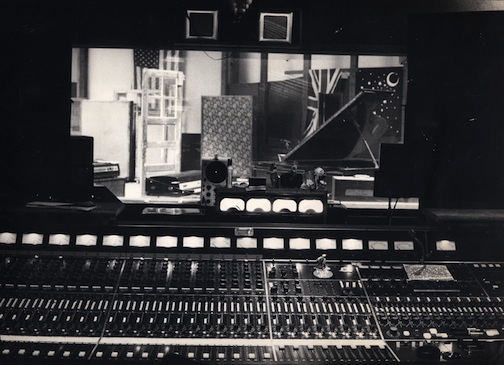
Shadowplays: Rory had second thoughts however and eventually scrapped the album entirely, dismantled the band, flew back to England and then later recorded the whole album again with sole remaining member of the band,Gerry McAvoy, and newly hired drummer Ted Mckenna. The album was recorded at Dierks Studio with the help of Alan O’Duffy.
The immediate thing is that I just want to get back to the bare brass knuckles of the sound. I’m going back to a three-piece for a while and if that sounds good, I’ll stay with it. There’s so much that I do guitar-style wise that can stand up in a three-piece because I play a cross between lead and rhythm and because of the acoustic knowledge I have. So far at rehearsals it’s sounded great with just three, so I’ll probably start the album on that basis and then just overdub myself on rhythm – or someone else. That’s more my thinking – getting away from the multi-layered sound. Going down to the bare bones. I’ve scrapped a lot of the songs – kept a couple of the ultra-hot ones – and added a few new ones. — Rory Gallagher

Shadowplays: In interviews later, former band mates Rod and Lou thought the album recorded at His Master’s Wheels in San Francisco was very good. Rory mentioned in a later interview that much of the album recorded at his Master’s Wheels could eventually see the light of day. Almost 35 years later it looks like that day has arrived. This month they are releasing a re-mixed version of that binned album with special bonus tracks and live performances of the Rory Gallagher Band at the Old Waldorf in 1979.
Robin Sylvester: The few days mixing in San Francisco in 1978 are a bit of a blur. I was living in LA, working as a bass player and trying to keep all my commitments. Elliott Mazer and his family looked after me well, and I fell in love with San Francisco again.
When I arrived there I found Rory struggling a bit with what they had. I think Elliott was also trying to figure out what Rory was hearing in his mind. And I just did my usual thing, – going through the tracks one by one, making my own “comps” of vocals and guitars, and mixing without doing anything too radical – standard practice in an unfamiliar room. “Wheels Within Wheels” (on the Best Of cd) is strange: some elements sound the same as my SF mix, yet it seems to be completely different!! I am most curious to hear the new release
Shadowplays: Was that the last time you worked with Rory? Did you keep track of his album releases, etc? Did you get a chance to see him during his U.S. tours from 78-91?
Robin Sylvester: We spoke occasionally for a few years, and then lost touch. I was unable to catch him when he was in town in the 80’s, but of course I always assumed there’d be another tour before too long . . .
I can’t say I really kept track, – it seemed so long between releases; but I picked up anything new when I saw it.
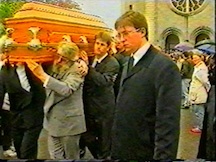
Shadowplays: Yes, his album production decreased dramatically, from putting out an album every year in the 70’s to taking 2 to 3 to almost 5 years before we’d get to hear a new Rory Gallagher album. He also toured less and less. In the mid-80’s he stopped touring in America altogether, not returning until his final U.S. tour in ’91. And unfortunately this was well before the internet had really blossomed, so a fan might not even know Rory had returned and was playing in a nearby town.
How did you hear about Rory’s passing? Where were you and what were you doing? Had you known he was ill?
Robin Sylvester: I was at home in San Francisco and and old friend from London called to tell me. I had no idea of his illness prior to that. I was not engineering much around that time except for friends, and was dragging my feet as far as learning the new developing computer technology. Around then I was playing bass or guitar with a lot of people.
Shadowplays: Session work or were you doing live gigs?
Robin Sylvester: At that specific time (’95) I was doing a bit of everything. A lot of “golden oldies” like Del Shannon, Billy Preston, Marvellettes, Peter Noone. The “golden oldies” were of course live, – Santa Cruz Boardwalk, County Fairs and so on. My resume of that stuff is quite amazing. Includes several loopy Chuck Berry shows, both fake and real Drifters and Coasters, Mary Wells, Percy Sledge and the great Sam Moore (Sam & Dave). But that’s a whole different chapter of my life! I always wished Rory could have caught me on a guitar gig!
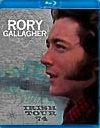
Shadowplays: It was unfortunate that he passed away so young, yet he left us with an incredible catalogue of music. Lately his music has seen a bit of a renaissance, with Eagle Rock releasing some excellent compilations of his music, as well as DVD’s from his shows at the German Rockpalasts and the Swiss Montreux Festivals. There is also a new documentary on his life, “Ghost Blues” and a DVD release of his appearances on the German Beat Club. Tony Palmers’s Irish Tour ’74 documentary has just been released on Blu-Ray, and in a few days time those San Francisco sessions will be released along with a new live album. Rory Days seem upon us once again!
Irish poet Louis de Paor recently said that Rory died before the world could thank him for all he’d done. What is your best memories of Rory? What would you thank him for?
Robin Sylvester: The most difficult question last! I would thank him for the trust that he gave me. It is mostly thanks to him that I broke away from that sweat-box in Dalston and had the experience of working at many great studios of the day. I remember high spirits on a break when the 2 of us were mixing at Wessex studios: I don’t think he was drinking at the time, but I most certainly was . . . The whole band’s equipment was set up and we had a crazy time running from instrument to instrument doing impressions of people!! My impression of Lou Martin had him on the floor!! I remember him just plugging in and having that sound: my job was easy. I remember the Stratocaster was strung much heavier than I expected; he must have really had to work it. Through free-association I could probably go on for a while . . . but I must be putting you to sleep by now! Another round anyone?
Shadowplays: I could listen to Rory stories all night. I think something that is sometimes forgotten by his fans is what a great sense of humor Rory had, and from what I’ve read he wasn’t adverse to winding someone up. Gerry recalls that at Musicland Studios, Rory convinced him he should play the baseline of Calling Card with the pedals of Lou’s Hammond organ, so Gerry gets down on his hands and knees trying for a half hour to press the pedals down quick enough and Rory’s in tears laughing that Gerry took him seriously and was actually giving it a go. When you were doing your impressions, did you do a splayed leg impression of Gerry?
Robin Sylvester: Ha-ha! Yes, I did wicked impressions of everyone that day, including Rory himself doing the introductions!! My Frank Rossi (of Status Quo) had him in stitches too, I recall! Such silliness was good relief from the hours in the control room.
Shadowplays: After reading a few Rock ‘n Roll autobiographies, including the new Keith Richards drug-filled expose’, Rory seemed able to avoid many of the excesses that ensnared your typical “rock star” and yet he died at such an early age. According to his brother, Donal, a mixture of improperly prescribed medications and alcohol was the precipitating factor.
Robin Sylvester: A word about drinking. I have shown a very casual attitude towards drinking throughout this interview. That is how it was then: everyone drank, mostly beer, myself sometimes more than some others. Rory enjoyed a drink or two when I first knew him, but he normally went home before long with his guitar, leaving various band-members and myself to close the bar! Health problems eventually slowed us all down, and I am much luckier than Rory, obviously.
Shadowplays: I imagine life on the road can exact a heavy toll on one’s health, and Rory toured almost continuously for most of his life. And now Gary Moore has recently died! He was only 58. Another sad day for the Blues. And yet they’ve left us with a wealth of music…
Robin, thanks for taking the time to share some of your memories of Rory. You’ve experienced some incredible times both in England and here in the States, and it continues onward with your associations with the greater Dead family. Your recent gig with Bob Weir and the Marin Symphony was a smashing success, and I enjoyed watching you and Bob Weir & friends playing on a live internet broadcast from TRI Studios the other day. Thanks again for taking time out of your busy schedule to talk about Rory.
Robin Sylvester: You are very welcome; and thanks for unlocking so many lost times!
2 Responses to “Rory Days: An Interview with Robin Sylvester”

Thanks for that, great to read an interview with someone who knew how Rory ‘ticked’!
Nick.
Rory always gives great interviews when the interviewer gets out of the way and lets him talk! Well done! [ sorry this somehow got posted to the wrong entry! ]